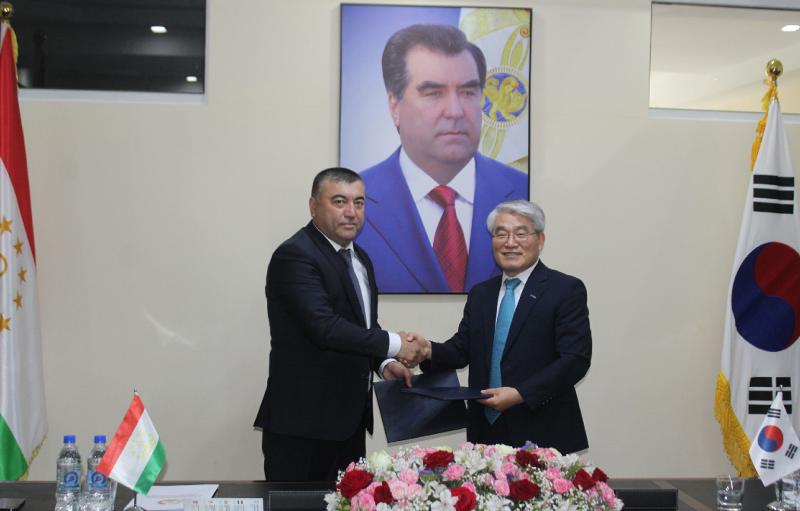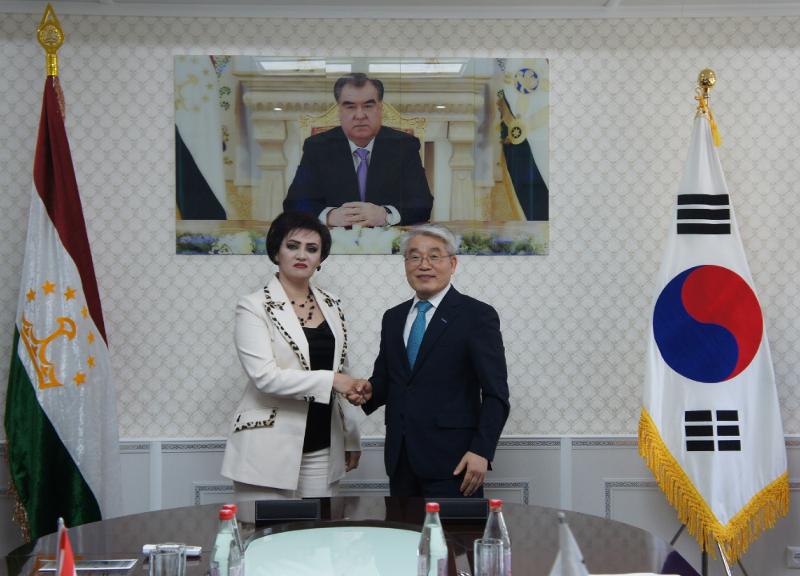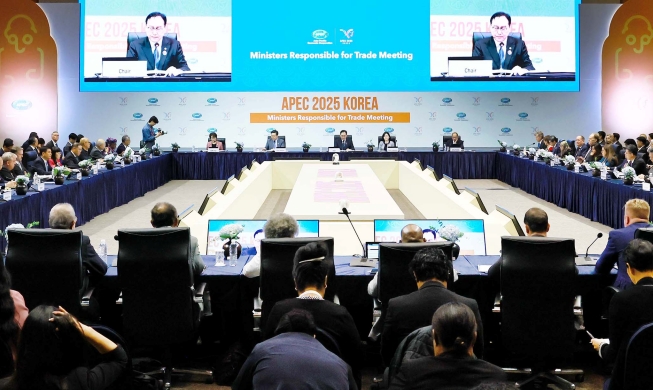
Davlatzoda Zafarbek (left), chairman of Tajikistan's National Commission on Irrigation and Drainage, on May 16 poses for photos with KOICA Vice President Hong Seok Hwa after signing the record of discussion on support for the modernization of the Central Asian country's agricultural water irrigation management at the commission's headquarters in Dushanbe, Tajikistan.
By Yoon Sojung
Photos = Korea International Cooperation Agency
The Korea International Cooperation Agency (KOICA) will help Tajikistan raise its resilience to climate change through two joint projects in official developmental assistance for agriculture.
KOICA on May 19 said it signed the record of discussions on both ventures with the Central Asian country on May 16 in the Tajik capital of Dushanbe to support the management of Tajikistan's agricultural water irrigation facilities and modernization of horticultural installations.
Under the agreement, KOICA over the next five years will inject USD 18.5 million into the project to provide comprehensive support in all agricultural sectors and tasks. They include improving farming facilities, raising productivity and pioneering sales routes for products focused on Rudaki, a farming region south of Dushanbe, and Hisor, west of Dushanbe.
The modernization project is expected to benefit about 30,000 residents of the Rudaki area through streamlining old pumping stations and facilities as part of the farming irrigation monitoring system. The provision of equipment such as forklifts, bulldozers and dump trucks will also allow farmers to perform dredging and maintenance of irrigation canals.
To modernize Tajikistan's horticultural facilities, KOICA build will a state-of-the-art complex in the Hisor region covering 20,800 square m. Using Korea's greenhouse know-how, the goal is to transfer cultivation technologies unaffected by climate or pests.
Other tasks are the development of greenhouses suitable for Tajik terrain for expansion to small-size farms and training in management and sales of crops after harvest.
Tajikistan has limited farmland as its territory is 93% mountainous, and its agricultural structure focuses on specific crops such as cotton. Snow from winter in alpine areas has been used for agricultural water, but difficulties due to recent changes in snow volume, snowfall cycle, heavy snow and dry periods due to climate change have made securing such water difficult, causing continuous damage to farmers.
"I could learn about the role of agriculture in the process of Korea's industrial development and the future direction that agriculture should take," Tajik Deputy Minister of Agriculture Nigina Anvari said. "Our ministry will do its best to ensure that the project produces an outcome that serves as a pilot model that can spread across the nation."

Tajik Deputy Minister of Agriculture Nigina Anvari (left) on May 16 shakes hands with KOICA Vice President Hong Seok Hwa after signing the agreed minutes on the modernization of Tajikistan's horticultural facilities at the ministry's compound in Dushanbe.
